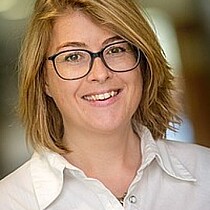

Publication date: Monday, 30 October 2023
Social stigmas can provide business opportunities for organisations. Three researchers have studied how social enterprises in the menstrual products industry used a disruptive strategy at the core of their ventures to break the stigma of menstruation. The study, from Associate Professor at Rotterdam School of Management, Erasmus University (RSM) Dr Mirjam D. Werner, and PhD candidate at RSM Maria Carmen Punzi, with Dr Krijn Turkenburg, Assistant Professor at the Vrije Universiteit Amsterdam, has contributed to the literature that focuses on stigma as opportunities for organisations and how they can be complementary for understanding processes of societal change.
The long process of removing the taboos of menstruation has entered a new era in the past couple of decades. In many countries, the choice of menstrual products has grown – these products appear on ordinary shop shelves alongside clothes and make up. There is much more open discussion; much of this is down to social entrepreneurs in the menstrual product industry who use a combination of visual and textual strategies to challenge the previously secretive norm surrounding menstruation, and to substitute it with a more woman-centric and empowering view.
“Our research is important. Millions of women are affected by the detrimental effect of the stigma surrounding menstruation,” says Dr Mirjam Werner. “We saw an increase of social enterprises in the menstrual product industry aiming to break that taboo and we wanted to understand how they went about achieving it. How were they successful in breaking the negative stronghold of the menstruation taboo?”

With no radical innovation in decades, advertising menstrual products tended to focus on comfort and protection against leaks, use blue liquid to represent menstrual blood rather than depicting the process of menstruation truthfully, and show worry-free, happy women.
In contrast, advertisements and other communications from the social entrepreneurs in the study stay closer to the truth of menstruating by talking openly about vulvas, showing blood and bloody products, and depicting women’s discomfort.
The researchers analysed the ways that 90 social enterprises in the menstrual products industry had challenged existing norms around menstruation and substituted them with new ones. These social entrepreneurs were selected because they were businesses that marketed a menstrual product such as disposable products made from sustainable fibres or reusable products such as menstrual cups, reusable pads, and period underwear – products unlike those offered by mainstream brands. These businesses were clearly mission-driven and invested in making a positive social impact through awareness raising campaigns, social impact projects, or activism.
These businesses used images as well as text to emphasise the normality of menstruation as something that most women experience, and portrayed a world in which women are not treated differently because they menstruate. The social entrepreneurs managed to create a new narrative for menstruation that empowers women worldwide.
Dr Mirjam Werner said: “We found that to break the hidden norms that are present in societal taboos it is important to use a variation of rhetorical strategies that combine text and visuals and that made it possible to speak about the unspeakable nature of taboos.
“It is possible for professionals to tackle and challenge entrenched and hard-to-challenge norms in society which marginalise particular groups – such as women. Our research contributes to improving gender equity by showing how we can challenge detrimental societal views and practices that harm women. We show how we can address and tackle the issue and by doing so empower and support women worldwide.”
Maria Carmen Punzi, MSc summed up their research findings: “We found that social enterprises can be drivers for change by steering clear of imposing certain acceptable narratives around menstruation, and instead making room for women and people who menstruate to come together, share their personal experiences and get the education and information they were missing.
“Since the experience of menstruation is mediated through the products and advertising that companies put out, organisations have a strong influence on consumers and society at large, and therefore a responsibility to tackle the stigma of menstruation, and other harmful beliefs and stereotypes that negatively affect women.”
The researchers summed up their findings for using the business opportunities in social enterprises that help to dispel stigmas:
Stigma can actually provide opportunities for organisations to create their businesses
The organisational form of social enterprises that can combine their social and commercial missions and use this to challenge menstruation taboo and stigma are important.
Our research furthermore highlights the various rhetorical strategies social entrepreneurs may draw on to challenge hidden and restrictive norms, which have to be multimodal to make the unspeakable speakable (an image can go beyond words and challenge societal norms at a different level)


You can read the published paper here: Werner, M.D., Punzi, M.C. and Turkenburg, A.J.K. (2023), Period Power: Organizational Stigma, Multimodality, and Social Entrepreneurship in the Menstrual Products Industry. Journal of Management Studies (STAR).


Science Communication and Media Officer
Rotterdam School of Management, Erasmus University (RSM) is one of Europe’s top-ranked business schools. RSM provides ground-breaking research and education furthering excellence in all aspects of management and is based in the international port city of Rotterdam – a vital nexus of business, logistics and trade. RSM’s primary focus is on developing business leaders with international careers who can become a force for positive change by carrying their innovative mindset into a sustainable future. Our first-class range of bachelor, master, MBA, PhD and executive programmes encourage them to become to become critical, creative, caring and collaborative thinkers and doers.
